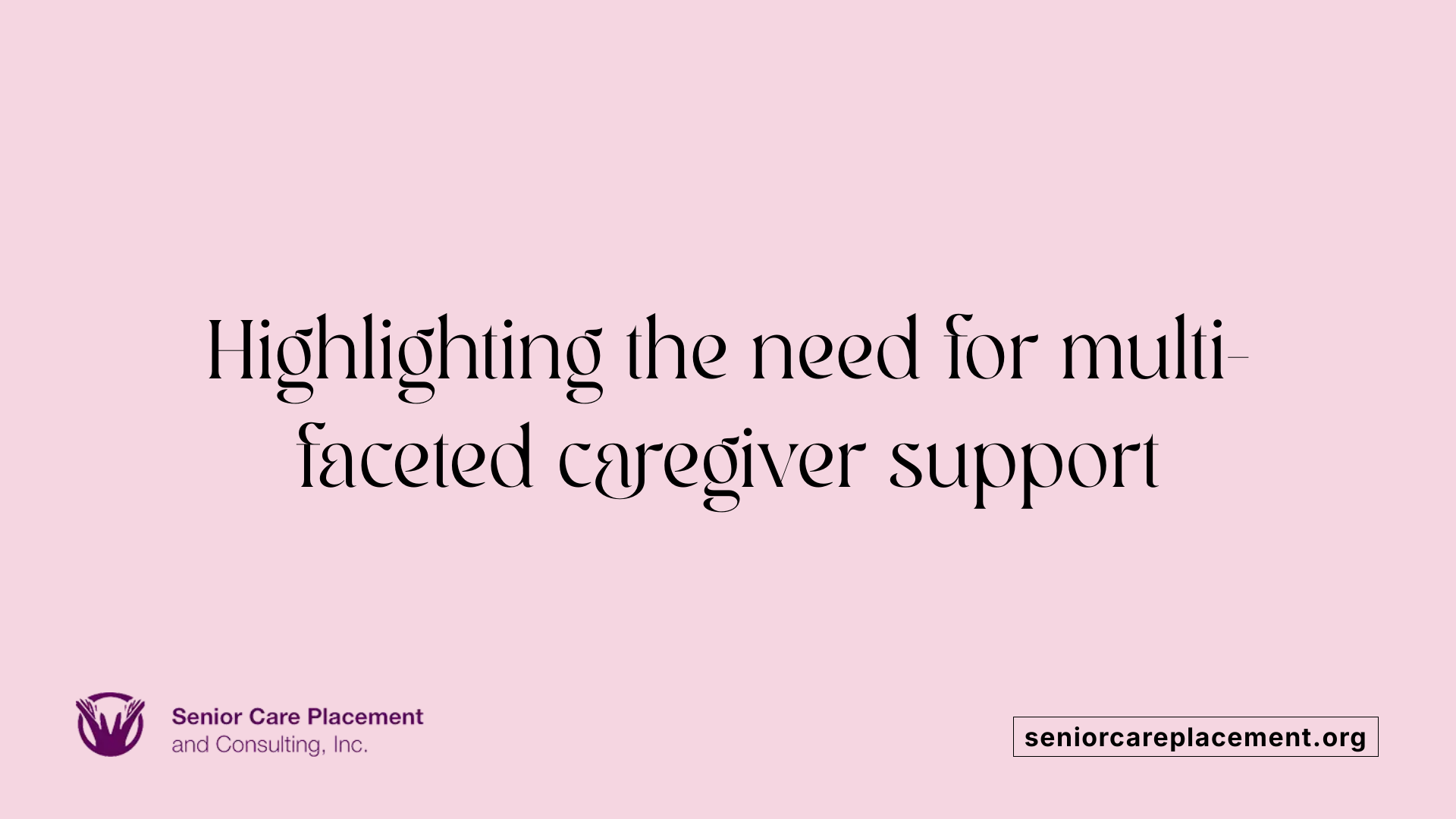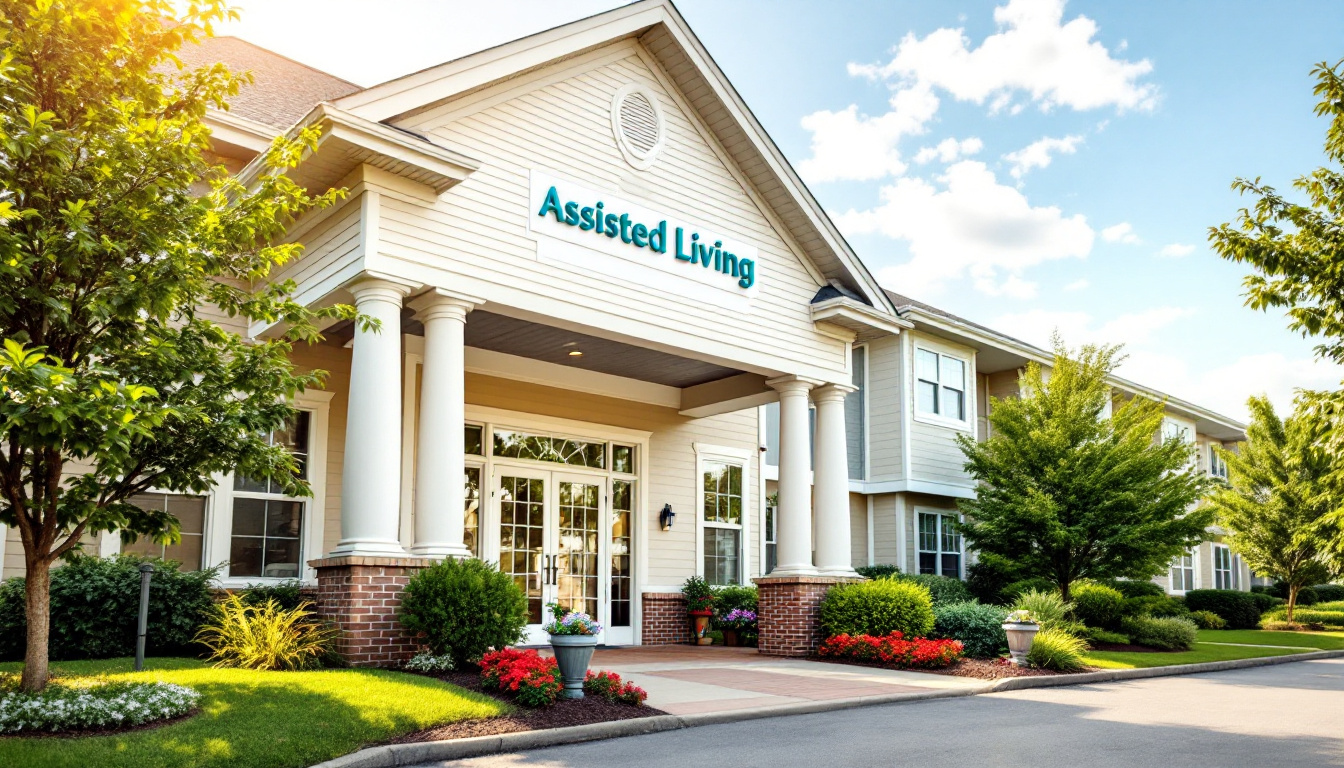The Role of Caregiver Input in Senior Care Placement Decisions
How Caregiver Perspectives Shape Elder Care Choices

Introduction
The decision to place an elderly loved one in senior care can be overwhelmingly complex, involving a myriad of emotional, logistical, and financial considerations. Amidst these challenges, caregivers serve as pivotal figures, whose insights and experiences significantly shape the final decision. This article delves into the crucial role of caregiver input in senior care placement decisions, examining how their perspectives, challenges, and interactions with healthcare systems contribute to better outcomes for the elderly they support.
Caregiver Duties and Responsibilities

Understanding the scope of tasks caregivers undertake.
Family caregivers have a wide range of duties that extend far beyond basic assistance. These responsibilities often include:
- Personal Care: Helping with activities of daily living such as bathing, dressing, and grooming.
- Health Management: Administering medication, monitoring vitals, and ensuring the health needs of the senior are met.
- Meal Preparation: Planning and cooking nutritious meals tailored to the dietary needs of their loved one.
- Transportation: Driving seniors to appointments, family gatherings, or social events.
- Housekeeping: Maintaining a clean living environment, which can include laundry, tidying up, and home maintenance.
- Emotional Support: Providing companionship and understanding, which is essential for mental and emotional well-being.
A crucial element of caregiving is documentation—caregivers must keep accurate records of care provided, monitor changes in health status, and follow care plans meticulously. This not only promotes a safe atmosphere but ensures continuity of care across different caregivers or medical professionals.
Exploring the impact of caregiver responsibilities on decision-making.
The responsibilities shouldering caregivers directly impact their decision-making abilities regarding senior care. Caregivers often act as surrogate decision-makers, particularly for seniors unable to make informed choices themselves due to conditions like dementia.
Their firsthand knowledge of the senior’s preferences, health needs, and living conditions informs crucial placement decisions. For instance, observations of unsafe living conditions can push families toward seeking assisted living options.
However, the emotional burdens and stress faced by caregivers can also complicate these decisions. Feelings of guilt over potential placement decisions or frustrations over navigating health systems can cloud their judgment. Caregivers need adequate support to prevent burnout, as their well-being is essential for effective decision-making.
Involving caregivers in discussions about care plans fosters a supportive environment, enhancing care quality for seniors.
Challenges Faced by Caregivers

What challenges do caregivers face in their roles?
Caregivers often face a multitude of challenges in their roles. They may struggle with uncooperative behavior from the individuals they care for, which complicates daily tasks. For instance, seniors with cognitive impairments may resist assistance, leading to additional stress for caregivers trying to provide necessary support.
Time constraints are another significant issue. Many caregivers juggle their caregiving duties with work and family responsibilities, leaving them little time for self-care. This imbalance can lead to burnout and hinder their ability to effectively care for their loved ones.
Effective communication with healthcare providers is crucial yet can be difficult. Caregivers might encounter misunderstandings or insufficient information about the senior's specific needs, which can lead to inadequate care. Navigating complex healthcare systems adds to their burden.
The emotional toll of caregiving is considerable. Caregivers often cope with feelings of stress, anxiety, and isolation. They might deal with guilt when considering senior care placements, which can affect their mental well-being and decision-making processes.
How do these challenges affect decision-making?
These hurdles inevitably impact decision-making regarding senior care placements. Strained by emotional and physical demands, caregivers may rush decisions without thoroughly assessing available options. They may also feel overwhelmed by the need to make immediate choices regarding care, leading to potential misalignment with the needs of the senior.
Additionally, communication barriers with healthcare providers can result in caregivers feeling unsupported in their roles. This lack of support may lead to decisions that do not fully consider the senior's preferences or the caregiver's insights, further complicating the care dynamics.
By addressing these challenges and fostering support systems, caregivers can enhance their decision-making capabilities and improve overall care outcomes for older adults.
Interacting with Healthcare Systems

How do caregivers interact with healthcare systems and what are the implications?
Caregivers are often the backbone of senior healthcare, navigating numerous tasks that interact with healthcare systems. They shoulder responsibilities like scheduling medical appointments, managing transportation, and communicating with various healthcare providers. This includes ensuring medical information flows seamlessly between family members and professionals, which is crucial for informed decision-making.
As caregivers manage health-related tasks like medication administration and monitoring changes in the senior's condition, they greatly influence treatment adherence. This active involvement can improve health outcomes, reducing hospitalizations and preventing urgent care situations.
However, caregivers face significant challenges in these interactions. The healthcare system is often fragmented, making it difficult for caregivers to find the necessary resources or support. They may encounter various obstacles, including insurance complexities and communication barriers with facility staff after placement. These logistical difficulties can lead to emotional stress and feelings of overwhelm, impacting the caregiver's health and effectiveness.
The emotional toll of these responsibilities cannot be overlooked. Feelings of guilt and anxiety often plague caregivers, especially when it comes to decisions about senior care placement. Their well-being directly affects their capacity for involvement in care decisions, making it imperative that they receive adequate support.
Ultimately, the dynamics between caregivers and healthcare systems are critical for the senior's quality of life. Effective caregiver engagement with these systems not only promotes better health outcomes for older adults but also substantially eases the caregivers' own burdens.
| Caregiver Tasks | Challenges Encountered | Outcomes |
|---|---|---|
| Scheduling medical appointments | Navigating complex healthcare settings | Improved patient care adherence |
| Coordinating transportation | Dealing with insurance and coverage issues | Fewer hospitalizations |
| Managing treatment plans | Effective communication with providers | Enhanced health outcomes |
| Monitoring health changes | Emotional stress and potential burnout | Sustainable caregiver involvement |
By providing caregivers with support and resources, healthcare systems can create a more effective partnership, ultimately benefiting everyone involved in the care continuum.
Decision-Making Process in Senior Care Placements

Analyzing the influence of caregivers in placement decisions.
Family caregivers play a pivotal role in senior care placements. Often, they serve as surrogate decision-makers, especially when older adults have cognitive impairments like dementia. Their unique position allows them to provide critical insights into the daily needs and preferences of the individuals they care for.
Caregivers often find themselves navigating complex healthcare and social service systems. This assistance is crucial, as it enables them to assess suitable senior care placements and advocate for appropriate services. Their responsibilities include evaluating health conditions, managing medications, and understanding care needs, which all influence the decision-making process.
Moreover, the emotional burden experienced by caregivers cannot be underestimated. Many caregivers face stress and anxiety while making these vital decisions, especially considering the implications of institutionalization. This emotional aspect significantly affects their decision-making capabilities, emphasizing a strong need for support systems that address caregiver well-being alongside senior care needs.
Exploring how caregiver perspectives are integrated into care plans.
Involving family caregivers in the care planning process is essential. Their input can lead to person-centered care solutions, ensuring that plans reflect the individual needs of seniors. For example, health care professionals often include caregiver evaluations in care plans, allowing for tailored approaches that recognize the complexities of family dynamics and the challenges caregivers face.
Effective communication between caregivers and healthcare providers is critical. This relationship allows for a shared understanding of care needs and strengthens the caregivers' position in discussions about placement options. Yet, barriers still exist, such as fragmented communication and misconceptions surrounding privacy laws, which can hinder effective partnerships.
Considering caregiver perspectives during care planning not only enhances the quality of care but also reassures caregivers, helping alleviate feelings of anxiety and guilt. As highlighted by various studies, their involvement often results in better health outcomes for seniors, confirming that recognizing and integrating caregiver insights is imperative for successful transitions to assisted living or other care environments.
| Caregiver Involvement Aspect | Impact on Decision-Making | Outcome for Senior Care |
|---|---|---|
| Emotional Support | Reduces anxiety | Enhances caregiver confidence |
| Active Participation | Leads to tailored care plans | Improves care quality |
| Communication | Facilitates understanding | Reduces errors in care |
| Health Assessment Integration | Informing placement needs | Aligns care with senior preferences |
Integrating caregivers' perspectives not only improves care for seniors but also supports caregivers themselves, fostering a collaborative environment for better health outcomes.
Shared Decision-Making in Elder Care
The Benefits of Including Caregivers in Shared Decision-Making
Involving caregivers in shared decision-making for elder care placements is crucial for several reasons. Primarily, caregivers possess intimate knowledge about the elderly person's history, preferences, and needs. This understanding can lead to more personalized and effective care solutions tailored to the individual’s specific circumstances.
Collaborative involvement empowers caregivers, making them feel valued and respected. Such recognition can alleviate anxiety, enhance their confidence, and contribute positively to their overall well-being. It’s not uncommon for caregivers to experience emotional burdens; thus, having input in decision-making can significantly relieve this strain.
Moreover, fostering open communication among caregivers, healthcare professionals, and the elderly ensures that everyone is aligned regarding the care plan. This improved dialogue minimizes the risk of misunderstandings, thereby promoting a cohesive care strategy that honors the wishes of the elder individual.
How Shared Decision-Making Affects Care Outcomes
Engaging caregivers in discussions about care options demonstrates a commitment to a supportive environment for both the elderly and their families. Research indicates that this inclusive approach often leads to better care outcomes. For instance, effective collaboration can facilitate the reduction of hospitalization rates and improve life satisfaction for the elderly recipient of care.
Additionally, caregivers who actively participate in decision-making are more likely to uphold care strategies aligned with patients' preferences and needs. This alignment not only fosters a sense of control for the elderly but can also improve compliance with care plans, thus enhancing overall health metrics.
The involvement of family caregivers is not merely beneficial; it is essential for ensuring that the care provided is person-centered. As families evaluate care options, the wisdom and input of caregivers can provide critical insights that lead to improved health outcomes, showcasing their vital role in the senior care spectrum.
Frameworks and Policies for Caregiver Involvement
Exploring existing frameworks for caregiver involvement.
Family caregivers are integral in providing ongoing support for older adults, influencing decisions about senior care placement significantly. Varied frameworks exist to enhance caregiver participation, ensuring their voices are integrated into care plans and health strategies.
Innovative strategies have emerged in different states, such as Colorado waiving scope of practice laws to compensate family caregivers for skilled tasks, and Tennessee mandating formal assessments of caregivers within care planning. This level of involvement can help address the diverse needs of both caregivers and care recipients.
Healthcare professionals are also increasingly recognizing the need to include family caregivers in decision-making processes. They often evaluate family dynamics while facilitating discussions among stakeholders to ensure collaboration. Supportive measures, like the RAISE Family Caregivers Act, underscore the commitment to empowering caregivers in navigating elder care systems with more robust support.
Analyzing policy implications for caregiver participation.
Despite the existing frameworks, significant gaps remain in systematically supporting caregivers, highlighting the necessity for comprehensive policies. Many caregivers inadvertently face isolation from health care providers, leading to fragmented communication and care planning.
Federal policies must evolve to address these barriers, ensuring that family caregivers are given due consideration and resources in health care discussions. Current legislation may overlook the emotional and logistical challenges caregivers face when considering long-term placements for their loved ones.
Integrating caregiver input into state Medicaid programs also presents a meaningful opportunity to facilitate better care outcomes. Collaborative policymaking could enhance communication and nurture partnerships between caregivers and medical professionals, fostering a more inclusive health care environment for older adults.
| Strategy/Policy | Description | Potential Benefit |
|---|---|---|
| RAISE Family Caregivers Act | Promotes supporting caregivers within Medicaid | Strengthens caregiver roles in health decisions |
| Caregiver Formal Assessments | Systematic evaluations of caregiving needs | Tailors support plans for improved care |
| Scope of Practice Waivers | Allows payment for skilled tasks by family caregivers | Encourages caregiver participation in health management |
Emotional and Psychological Aspects of Caregiving
Examining the psychological impact on caregivers
Family caregiving brings a substantial emotional burden that significantly impacts caregivers' mental health. Many caregivers experience stress, anxiety, and even feelings of guilt, especially when making placement decisions for loved ones with cognitive impairments. The emotional toll can be compounded by feelings of isolation, as caregivers often navigate their responsibilities without adequate support from health care systems. Complicating their journey, caregivers frequently feel marginalized in discussions about the care their loved ones receive, leading to increased stress levels and reduced involvement in care decisions.
Discussing strategies to support caregiver well-being
To better support the mental health of caregivers, several strategies can be beneficial:
Building a Support Network: Establishing connections with other caregivers or support groups can provide a platform for sharing experiences and emotional burdens.
Engaging in Self-Care: Caregivers should prioritize their own well-being, engaging in activities that recharge them physically and mentally, like exercise, hobbies, or mindfulness practices.
Accessing Resources: Utilizing services such as counseling, training, and respite care through state Medicaid programs can help alleviate pressures caregivers face.
Effective Communication with Healthcare Providers: Open dialogue with healthcare professionals not only ensures caregivers feel informed but also supports collaborative decision-making that recognizes the caregiver's vital role.
Incorporating these strategies can lead to improved health outcomes for both caregivers and their elderly family members, ultimately enhancing the overall quality of care.
Challenges of Caregiver Decision-Making
Analyzing obstacles in the decision-making process
Family caregivers often face numerous hurdles when making decisions regarding senior care placements. These challenges can stem from emotional burdens, such as guilt associated with considering institutional care for loved ones. Many caregivers experience significant stress, which can cloud judgment and affect decision-making capabilities. Moreover, the healthcare system frequently overlooks caregivers' needs, assuming they possess the competence and availability to manage complex care scenarios.
Communication barriers also exist. Caregivers may struggle to convey care needs or preferences to facility staff post-placement, leading to misalignments in the care their loved ones receive. Additionally, fragmented care delivery and misinterpretations of privacy laws can further complicate effective involvement. Often, caregivers may find it hard to navigate the healthcare landscape due to inadequate guidance from healthcare professionals.
Strategies to overcome decision-making barriers
To tackle these challenges, establishing a robust support network is critical. Caregivers should seek assistance from healthcare professionals who can provide guidance on care options. This may include evaluating the senior's current health conditions and preferences, as well as facilitating family discussions to ensure everyone’s concerns are addressed.
Utilizing health information technology can also enhance caregiver decision-making. Online platforms can facilitate better communication between caregivers and health professionals, ensuring caregivers are equipped with the necessary information.
Additionally, engaging in caregiver support groups can provide emotional relief and practical insights, helping enhance their confidence in decision-making processes. Training programs aimed at improving caregiver knowledge about the healthcare system and the types of available support can reduce feelings of isolation and bolster decision-making capabilities.
Healthcare System Interaction and Caregiver Impact
Role of healthcare professionals in supporting caregivers.
Healthcare professionals play a crucial role in assisting family caregivers, particularly during the challenging process of decision-making for senior care placements. Their functions often include evaluating the health situations of both the caregiver and the older adult to provide tailored support. This support can alleviate emotional burdens by offering practical guidance on navigating complex healthcare systems and paperwork required for placement decisions.
Family caregivers often voice their concerns and needs during meetings with healthcare professionals, which can help ensure that the preferences and requirements of care recipients are considered. Communication between caregivers and healthcare providers is pivotal for establishing clear care plans, enhancing caregivers' confidence, and ensuring that both the caregiver and the senior receive the necessary support. Research indicates that when caregivers feel supported, it positively influences care outcomes by reducing hospitalization rates and streamlining processes associated with long-term care.
How systemic barriers affect caregiver input.
Despite their significant role, family caregivers often encounter systemic barriers that hinder their involvement in the healthcare decision-making process. Factors such as fragmented care delivery systems, misunderstandings of privacy laws, and restrictive payment policies can obstruct effective communication between healthcare professionals and caregivers. These barriers can make caregivers feel marginalized and affect their capacity to advocate for their loved ones' needs.
Moreover, the care systems frequently operate under the assumption that family caregivers are competent and available, which can overlook the support they require. Improving caregiver involvement necessitates addressing these systemic challenges, as their insights are vital for person-centered care that reflects seniors' changing needs. Engaging caregivers in discussions around care planning not only empowers them but also enhances the overall quality of care through shared decision-making.
Involving Caregivers in Elder Care Policies
The impact of policy initiatives on caregiver roles
Policies such as the RAISE Family Caregivers Act aim to promote a national strategy that supports family caregivers. These initiatives recognize the critical role caregivers play in managing the complex dynamics of elder care. By acknowledging caregivers in the policy framework, these measures enable better training, support services, and financial assistance tailored to caregiver needs.
State initiatives, like those in Colorado and Tennessee, showcase innovative approaches by allowing skilled health-related tasks to be performed by family caregivers, and requiring formal assessments of caregiver needs respectively. Such policies not only uplift caregivers but can also reduce institutional care costs, highlighting their vital contribution to the healthcare system.
How involvement in policymaking improves care quality
Involving caregivers in elder care policymaking ensures that their insights and experiences are translated into actionable strategies. This inclusion fosters a more comprehensive understanding of the challenges caregivers face, leading to the development of tailored support systems.
For example, when caregivers participate in Family Councils, they can voice concerns that directly influence care policies, enhancing the overall quality of care. Improved dialogue between caregivers and healthcare professionals mitigates misunderstandings, ensuring that care plans reflect the real needs of both caregivers and care recipients.
By integrating caregiver input into the decision-making process, care plans become more person-centered, positively impacting health outcomes and promoting better problem-solving for instances of home care. Overall, fostering a collaborative relationship between caregivers and policymakers is essential for establishing effective, responsive elder care systems.
Caregiver Input for Seniors with Cognitive Impairments
Challenges posed by caring for cognitively impaired seniors.
Caring for seniors with cognitive impairments, such as dementia, comes with its unique challenges. Caregivers often find themselves navigating complex health care and social service systems. This can be overwhelming, particularly without adequate support and resources. Many caregivers also experience emotional burdens and stress, which can hinder their ability to make critical decisions about care placements.
One significant hurdle is the lack of effective communication within the healthcare system. Caregivers frequently feel marginalized, and their needs are often overlooked, which diminishes their involvement in the decision-making processes. Misinterpretation of privacy laws further complicates communication between caregivers and healthcare professionals, leading to fragmented care delivery.
Role of caregivers in enhancing care quality and decision making.
Despite these challenges, family caregivers play a vital role in improving care quality for older adults. They serve as the primary decision-makers when it comes to the placement and overall care of their loved ones. Establishing a comprehensive care plan is crucial, as it outlines the individual's medical needs, preferred medications, and healthcare providers, ultimately leading to better health outcomes and reduced hospital visits.
Engaging caregivers in the process can result in a person-centered approach, enhancing the overall quality of care provided. Their insights and experiences can inform care planning and execution, ensuring that support strategies align with the seniors' needs and preferences. Through shared decision-making, caregivers not only advocate for the best options but also contribute to a more supportive environment for the older adults, fostering a sense of confidence despite challenges.
Practical Guidance for Long-term Care Decisions
Guidelines for Families Navigating Senior Care Placements
Navigating senior care placements can be daunting for families. Here are some practical steps to take when making these critical decisions:
- Assess the Care Needs: Begin by evaluating the specific needs of the senior. Consider health conditions, mobility challenges, and daily living assistance requirements.
- Involve the Senior: Engage the older adult in discussions about their preferences and concerns regarding care. This inclusion fosters a sense of control and leads to better acceptance of changes.
- Research Options Thoroughly: Visit multiple facilities, compare services and costs, and seek recommendations from trusted sources. This ensures you make an informed decision that meets the care recipient’s needs.
- Establish a Care Plan: Collaborate with healthcare providers to create a detailed care plan. This document should outline medical conditions, medications, and necessary services to avoid miscommunication and enhance care delivery.
- Budget and Financial Planning: Openly discuss financial aspects with family members. Understanding payment sources and costs upfront can prevent misunderstandings later.
Resources Caregivers Can Access for Support
Numerous resources are available for caregivers as they navigate long-term care decisions:
- Caregiver Support Programs: Organizations like AARP and local Area Agencies on Aging provide valuable information and resources for caregivers, including training and counseling.
- Healthcare Professional Consultation: Engaging health professionals can illuminate available services and assist in understanding care needs. They can also help link caregivers to additional supports.
- State Medicaid Programs: Many states offer specific programs for family caregivers, addressing training needs, respite care, and in some instances, stipend support for caregiving responsibilities.
- Online Resources: Websites dedicated to senior care often provide tips, checklists, and forums for caregivers to share experiences and advice.
Table: Resources for Caregivers
| Resource Type | Description | Benefits |
|---|---|---|
| Caregiver Support Programs | Local and national organizations offering training | Access to counseling and advocacy |
| Healthcare Consultations | Professional advice from doctors and specialists | Improved understanding of care needs |
| State Medicaid Programs | Financial and services assistance for caregivers | Potential stipends and training programs |
| Online Resources | Informational websites and forums for caregivers | Community support and shared advice |
By utilizing these guidelines and resources, families can make informed and compassionate decisions regarding long-term care placements for their loved ones.
Legal Considerations in Senior Care Placements
Exploring Legal Issues in Care Placements
Navigating the legal landscape of senior care placements can be complex and challenging for families. Legal issues may involve guardianship, power of attorney, and the rights of the older adult receiving care. These factors are crucial, as they define authority in making health care decisions and managing financial responsibilities.
For families considering assisted living or other forms of long-term care, understanding legal frameworks is essential. This includes comprehending the implications of various care agreements and ensuring compliance with local and federal regulations, especially concerning Medicaid and service eligibility.
The Role of Caregivers in Navigating Legal Aspects
Caregivers often act as pivotal players in managing and understanding these legal complexities. They may need to oversee documentation like advance directives, ensuring that the wishes of the older adult regarding care and treatment are explicitly stated and addressed.
Establishing a durable power of attorney allows caregivers greater influence in decision-making, especially when the senior adult can no longer advocate for themselves. This responsibility often falls on family members, who may feel overwhelmed yet play a significant role in defining legal aspects of care placement.
Open communication between caregivers, healthcare professionals, and legal advisors can streamline the process, mitigating conflicts and confusion around care decisions. Furthermore, family caregivers participating in caregiver councils can advocate for their loved ones, emphasizing legal rights to engage effectively in care discussions.
In conclusion, caregivers must stay informed and engaged to navigate the legal implications involved in senior care placements. Their insights and advocacy can significantly impact the quality of care and the dignity of the older adults they serve.
| Legal Aspect | Importance | Caregiver Role |
|---|---|---|
| Guardianship | Determines decision-making authority | Advocate for necessary appointments |
| Power of Attorney | Authorizes caregivers to act on behalf of seniors | Ensure proper documentation |
| Advance Directives | Specifies preferences for end-of-life care | Facilitate discussions with seniors |
| Medicaid Regulations | Defines eligibility and funding for care placements | Understand funding mechanisms |
Family Council and Caregiver Influence
The significance of Family Councils in care policy.
Family Councils serve as a vital platform for caregivers to voice their concerns and influence care policies within assisted living and long-term care facilities. These councils empower caregivers to participate in discussions about care practices and operational standards, allowing them to advocate for the needs of their loved ones.
By participating in Family Councils, caregivers can share insights from their personal experiences, helping to shape policies that enhance the quality of care and address specific gaps in service delivery. This involvement ensures that family perspectives are integrated into care planning and institution-level decisions, which is crucial given how caregivers often provide day-to-day support for older adults.
Effectiveness of such councils in caregiver advocacy.
The effectiveness of Family Councils in promoting caregiver advocacy can be observed through various outcomes. These councils often facilitate better communication between families and healthcare staff, contributing to improved problem-solving and more responsive care environments. For instance, caregivers can direct attention to specific needs, leading to tailored interventions that align with the preferences and requirements of the care recipients.
Moreover, studies have shown that when caregivers are actively involved in decision-making processes, their anxiety and feelings of isolation reduce significantly. Engaging caregivers fosters an environment of collaboration, leading to better health outcomes and a more holistic approach to older adult care. Ultimately, Family Councils create a structured way for caregivers to influence important care decisions, enhancing the overall well-being of both caregivers and care recipients.
Building a Support Network for Caregivers
Importance of Professional and Peer Support for Caregivers
Creating a robust support network is essential for family caregivers. Stress and emotional burdens are common among those caring for older adults, particularly when navigating complex health care and social service systems. Support networks can provide caregivers with valuable resources, emotional assistance, and shared experiences that can help mitigate feelings of isolation. These networks not only improve the overall well-being of caregivers but also enhance the quality of care provided to older adults.
Professional support plays a significant role in understanding medical and emotional needs. Healthcare professionals can guide caregivers through care planning, ensuring their voices are heard. Additionally, peer support through support groups offers a platform for caregivers to share their experiences and receive encouragement from others in similar circumstances.
Strategies for Creating a Robust Support Environment
To build an effective support environment for caregivers, consider the following strategies:
- Establish Connections With Local Support Groups: Reach out to local community centers or healthcare facilities that host caregiver support groups.
- Utilize Technology: Explore online forums and virtual support groups that can provide flexible options to connect with others.
- Engage Healthcare Professionals: Encourage open communication with healthcare providers, ensuring that caregivers’ knowledge and concerns are addressed during care meetings.
- Implement Respite Care: Look for resources that offer temporary relief to caregivers, allowing them to recharge and maintain their own health.
- Foster Relationships with Family and Friends: Encourage open discussions with family members about caregiving responsibilities to create a supportive home environment.
By promoting these strategies, caregivers can cultivate a supportive environment that not only uplifts them personally but also ensures that older adults receive thoughtful and attentive care. Engaging family caregivers is crucial for improving health outcomes and overall satisfaction in senior care placements.
Impact of Financial Planning on Placement Decisions
Family discussions regarding financing elder care facilities.
Financial planning plays a crucial role when considering assisted living options for older adults. Engaging in open discussions about finances within the family can lead to a clearer understanding of available resources. This dialogue helps identify potential funding avenues, such as savings, pensions, long-term care insurance, or state assistance programs.
Involving seniors in these conversations promotes transparency and reassures them that their preferences are considered. When families assess the financial implications of elder care placements together, they can create a sustainable plan that meets the senior’s needs while maintaining fiscal responsibility.
The importance of transparent budgeting for care placements.
Transparent budgeting is vital in ensuring that families are well-equipped to handle the costs of long-term care. Establishing a clear financial roadmap helps families avoid unexpected expenses and facilitates informed decision-making regarding care facilities. Caregivers should outline estimated monthly costs, including accommodation, personal care services, and any additional medical care that may be required.
Emphasizing the importance of thorough research into assisted living facilities can also yield significant advantages. Touring multiple sites and consulting various sources—including experts in elder care—can contribute to better-informed choices about financial commitments involved, ultimately fostering a smoother transition into care settings.
Ultimately, careful financial planning and open family discussions can significantly mitigate the stress often associated with placement decisions. These steps encourage collaborative involvement, ensuring that the financial realities align with care preferences, thereby enhancing the quality of life for older adults too.
| Aspect | Importance | Outcome |
|---|---|---|
| Family Financial Discussions | Clarity on funding options | Informed decisions on elder care |
| Transparent Budgeting | Avoiding unexpected expenses | Smooth transition to assisted living |
| Joint Assessments | Comprehensive understanding of costs | Enhanced quality of life for seniors |
Technology in Enhancing Caregiver Roles
Utilizing health technology to support caregivers
Health information technology has emerged as a vital asset for family caregivers. By facilitating better communication and providing easy access to care plans, technology supports caregivers in navigating complex health care and social service systems. This connectedness ensures that caregivers can quickly obtain essential information regarding a senior's medical conditions, medications, and service options, helping them make informed decisions about care placements.
Examples of useful technologies include:
- Telehealth Services: Allow caregivers to connect with healthcare professionals without the need for travel.
- Care Coordination Apps: Help track medications, appointments, and daily care routines, ensuring consistency in care delivery.
- Health Monitoring Devices: Enable caregivers to observe health metrics in real-time, identifying concerns quickly.
Impact of tech solutions on caregiving and decision-making
The integration of technology into caregiving drastically enhances the decision-making process. Families are better equipped to assess the specific needs of their aging loved ones through effective communication, reducing misunderstandings and improving overall care.
A 2022 study revealed that caregivers who utilized tech solutions reported feeling more confident in their decision-making roles. With tools that offer tailored reminders or alerts about changes in the senior's health, caregivers can react promptly and avoid potential crises. Moreover, technology aids in emotional support by connecting caregivers with virtual support groups, reducing feelings of isolation.
Adoption of tech-enabled solutions not only improves the caregivers' efficiency but also directly impacts healthcare outcomes. Research indicates that families engaging in comprehensive decision-making processes tend to select more appropriate care options, ultimately enhancing the quality of life for older adults.
In summary, incorporating technology into caregiving roles not only eases the burden on caregivers but also promotes better health outcomes for the seniors they support.
Senior Care Placement: Insights from Observations
Recognizing Signs that Indicate Senior Care Needs
As adults age, their ability to manage daily tasks often declines. Certain indicators can suggest a need for senior care. These signs may include difficulty with activities of daily living (ADLs) such as bathing, dressing, or managing medications. Additionally, frequent falls, memory loss, or withdrawal from social activities can signal the necessity for more structured support.
Caregivers should remain vigilant for changes in their loved ones that indicate increasing care requirements. These warnings can prompt discussions about potential placements, ensuring that the needs of the senior are addressed effectively.
The Role of Caregiver Observations in Placement Decisions
Caregivers play a vital role in assessing the living conditions and overall well-being of older adults. Observational insights from family caregivers are crucial in recognizing when a senior may need more assistance than they can provide at home. This may involve noting expired food in the fridge or missed medications, which could point to cognitive decline or an inability to maintain their own health.
Together with healthcare professionals, caregivers can evaluate whether assisted living options or nursing facilities are appropriate. Engaging both the caregiver and the senior in discussions about care needs fosters better decision-making, ensuring that personal preferences guide placement choices.
By systematically addressing these signs and incorporating caregiver observations into care planning, families can enhance the quality of life for seniors, supporting them through transitions with dignity and respect.
Touring and Researching Facilities
Process of evaluating assisted living options.
When families begin evaluating assisted living options, a systematic approach is essential. This involves multiple steps to ensure that the needs of the older adult are met comprehensively.
- Identifying Needs: Families should first outline the specific needs of their loved one, including mobility challenges, medical requirements, and daily living activities.
- Researching Facilities: Online research can yield useful insights. Look for reviews, ratings, and services specific to each facility, considering factors such as location, safety, and care quality.
- In-Person Tours: Touring multiple facilities is crucial. During these visits, observe the living conditions, staff interactions, and community atmosphere. Pay attention to details like cleanliness and available activities, which contribute to overall quality of life.
- Consulting Resources: Engage in discussions with healthcare professionals or social workers who can provide additional recommendations and insights into suitable facilities.
- Financial Planning: Prior to final decisions, discussing potential costs and payment options helps ensure financial preparedness.
Caregiver involvement in touring and choosing facilities.
The role of caregivers in this process cannot be overstated. Their involvement is invaluable as they possess intimate knowledge of the care recipient’s habits and preferences.
- Accompaniment on Tours: Caregivers should accompany family members during facility tours. Their perspective can highlight specific needs for personalized care and ensure that facilities align with the senior's preferences.
- Identifying Red Flags: Caregivers can identify any gaps in care or potential issues that might not be apparent to family members, such as staff responsiveness or patient engagement levels.
- Advocating for Preferences: In discussions about amenities and care services, caregivers can advocate for options that match the desires and needs of the loved one, facilitating a better fit.
In essence, touring assisted living facilities allows families to make informed decisions, and involving caregivers enhances the decision-making process and ensures the selected option is well-suited to the individual's needs.
Emotional Transition in Assisted Living
Preparing Seniors for Transitioning to Care Facilities
Transitioning to an assisted living facility can be a challenging experience for older adults. Emotions can run high as they face separation from their homes and familiar environments. By involving seniors in discussions about their potential care options, it is possible to enhance their feelings of control. Engaging them in conversations about their preferences in assisted living not only helps them feel included but also cultivates a sense of readiness for the change. Observing their current living conditions, such as ensuring they have adequate food and medication management, can prompt much-needed discussions about the assistance they might require.
Having structured tours of potential facilities can provide seniors with a clearer picture of what to expect, easing some anxiety. Families can also benefit from expert consultations, helping them make well-informed decisions that take into consideration the emotional and physical needs of their loved ones.
Caregiver Roles in Easing Emotional Transitions
Family caregivers play a pivotal role in helping seniors navigate emotional transitions to assisted living. Their involvement is crucial, acting as emotional supporters during this life change. Caregivers can help reduce feelings of guilt often associated with placement decisions by expressing understanding and validating seniors' feelings.
Moreover, caregivers are often essential in communicating the needs and preferences of older adults to facility staff, bridging any communication gaps that may arise post-placement. Building a support network, including health professionals, can also significantly alleviate caregiver stress and ensure that they are equipped to facilitate a smooth transition.
Ultimately, the caregiver's emotional state and well-being directly impact the quality of support they provide. By prioritizing their own health and accessing available resources, caregivers can better support their loved ones through these transitions into care facilities.
Professional and Family Caregivers
Differences Between Professional and Family Caregiving Roles
Family caregivers and professional caregivers fulfill critical but distinctly different roles in the care of seniors. Family caregivers often take on a multifaceted role that encompasses responsibilities ranging from daily support, personal care, meal preparation, to emotional and medical management. Their involvement is typically motivated by love and a sense of duty towards their loved ones. In contrast, professional caregivers, such as those employed in assisted living facilities, are trained staff members who provide specialized care, often following a structured schedule and adhering to professional standards.
Responsibility Breakdown:
| Aspect | Family Caregivers | Professional Caregivers |
|---|---|---|
| Emotional Support | High - often the primary source | Moderate - less personal connection |
| Medical Management | Informal, based on personal knowledge | Formal, trained interventions |
| Decision-Making | Frequently involved in family discussions | Follow care plans and protocols |
| Training and Education | Varies widely, often no formal training | Professional training and certification |
The Impact of Both Types on Care Placements
Both family and professional caregivers significantly influence care placement decisions for seniors. Family caregivers act as crucial advocates, articulating the needs and preferences of their loved ones when seeking appropriate care options. Their insights can often lead to better alignment between the care recipient's wishes and the types of services or facilities that are chosen. Moreover, their emotional investment can ensure that the decision-making process encompasses not only the logistical aspects but also the emotional and relational factors that affect the elder's transition to care.
On the other hand, professional caregivers contribute through their expertise, helping families navigate complex healthcare systems and ensuring that care placements are suitable for the physical and emotional needs of seniors. Their experience can play a vital role in identifying potential challenges and addressing them proactively, thus improving the overall quality of care and the efficiency of the transition to residential settings.
Ultimately, effective collaboration between family and professional caregivers can optimize placement decisions, leading to better care outcomes and enhanced well-being for seniors.
Funding Inadequacies in Long-term Care
How do funding challenges affect care decisions and placements?
Funding inadequacies in long-term care significantly influence the decisions that families must make regarding senior care placement. With limited financial resources available, families often face the difficult task of weighing available care options against their budget. This situation can lead to rushed decisions or suboptimal care placements that do not fully meet the needs of the older adult.
Many families are left navigating complicated state and federal funding programs, which adds further challenges. Insufficient reimbursement rates for care providers mean that many quality facilities may not be financially sustainable, leading families to compromise on the quality of care based mainly on cost. As a result, caregivers must thoroughly evaluate the long-term financial commitment involved in caring for their loved ones and seek creative solutions such as pooling resources or looking into community-based services.
What role do caregivers play in navigating funding issues?
Caregivers are often the frontline advocates for their relatives, tackling the complexities of funding for long-term care. They frequently engage with healthcare professionals to understand feasible options based on financial limitations. This role involves researching available resources, understanding insurance coverage, and even seeking out local grants or community services that may alleviate some financial pressures.
Additionally, caregivers need to facilitate family discussions about financial planning, ensuring everyone is on the same page regarding costs and expectations. By actively participating in this planning process, caregivers help foster a more comprehensive care approach, ultimately maximizing the quality of support for older adults despite funding challenges. In sum, caregiver engagement in financial planning is critical for ensuring that the financial aspects of care are as supportive and effective as possible.
Inclusive Curative Approaches in Elder Care
Strategies for inclusive care planning with caregiver input.
Incorporating family caregivers in the senior care planning process fosters a collaborative approach that significantly enhances care quality. Caregivers provide vital insights into the unique needs of older adults, which is essential for effective decision-making. Key strategies include establishing regular communication channels between caregivers and health care professionals. This ensures caregivers are adequately informed about health conditions and care options, which can lead to smoother transitions into long-term care.
Additionally, creating care plans that include caregivers' observations—such as changes in the senior's living conditions or unmanageable tasks—prompts crucial discussions about appropriate assistance. Further, engaging caregivers in discussions about the financial aspects of care helps them prepare for funding challenges, ensuring decisions are both practical and tailored to the older adult’s needs.
Ensuring that caregiver perspectives align with patient needs.
The involvement of familial surrogates in decision-making is particularly important, especially for older adults with cognitive impairments. Health care professionals should prioritize effective communication to ensure caregivers feel supported and empowered. By addressing potential feelings of anxiety or guilt, caregivers can more effectively advocate for the needs and preferences of their loved ones.
Moreover, shared decision-making processes can lead to remarkable improvements in care outcomes. Caregivers who feel included and respected in this process tend to provide information that aligns with the older adult’s wishes, fostering person-centered care.
In summary, incorporating caregiver perspectives not only enhances care for seniors but also equips caregivers with the confidence and support they need to navigate complex decision-making landscapes. By doing so, we can ensure that the care provided is holistic and in line with the individual's specific health and emotional requirements.
Navigating Healthcare Professionals' Influence
Managing the Pressure from Healthcare Professionals During Placement
Navigating the complexities of care placement can be daunting for caregivers, who often face pressure from healthcare professionals. This can manifest as recommendations for certain facilities or suggestions for timelines that may not consider the unique emotional challenges caregivers face. Caregivers frequently feel overwhelmed, making it essential to establish a collaborative relationship with healthcare providers.
Effective communication is key in these interactions. Caregivers can enhance their confidence by asking questions to clarify the rationale behind providers' suggestions. Being prepared with information about the older adult’s needs and preferences can reinforce the caregiver's autonomy. Maintaining an open dialogue allows caregivers to express concerns and stress factors related to their loved one's care, ensuring that their perspective is actively acknowledged.
Caregiver Strategies for Maintaining Autonomy in Decisions
To retain control over care decisions, caregivers should embrace proactive strategies. Creating and sharing a detailed care plan, which outlines medical needs and personal preferences, fosters a shared understanding among family members and healthcare professionals. Additionally, engaging family members in discussions can create a supportive network that reinforces the caregiver's position during decision-making processes.
Seeking resources such as support groups can also provide caregivers with the tools to navigate these challenging dynamics effectively. These groups offer a platform to share experiences and strategies, further empowering caregivers to advocate for their loved ones while reducing feelings of isolation.
By understanding the healthcare system and maintaining clear communication, caregivers can better manage the influence of professionals in care decisions, ensuring their voice remains essential in the placement process.
Caregiver Input in State Medicaid Strategies
State Initiatives Supporting Caregiver Input in Medicaid Care Planning
State Medicaid programs are increasingly recognizing the essential role of family caregivers in supporting older adults, especially those who rely on Medicaid services. Innovative strategies are being implemented to ensure that caregivers are included in care planning processes.
States like Colorado have waived certain scope of practice laws to enable financial compensation for skilled health-related tasks performed by family caregivers. This policy acknowledges the value caregivers bring to home healthcare, thereby enhancing their involvement in care decisions.
Moreover, Tennessee requires managed care organizations to conduct formal assessments of family caregivers as part of their care planning. These assessments help to identify caregivers' needs, preferences, and the strains they may experience, fostering tailored support plans that are integral to the care of seniors.
Examples of Effective Caregiver Inclusion Policies
Federal legislative initiatives, such as the RAISE Family Caregivers Act, promote a national strategy to bolster family caregiver support within Medicaid frameworks. This initiative emphasizes providing caregivers with the resources they need for effective communication and collaboration with healthcare professionals.
Research indicates that when family caregivers are actively involved in the care planning process, it yields improved health outcomes for care recipients and alleviates the emotional burden on caregivers. Several states are exploring ways to foster this involvement, such as offering training, respite care, and financial support to caregivers.
| State | Initiative | Impact |
|---|---|---|
| Colorado | Waived scope of practice laws | Allows payment for skilled tasks performed by family caregivers. |
| Tennessee | Family caregiver assessments in care planning | Identifies needs and preferences for tailored caregiver support. |
| Federal | RAISE Family Caregivers Act | Promotes national strategies for supporting family caregivers. |
The integration of family caregivers into care strategies not only enhances the decision-making process but also leads to more person-centered care, which is crucial for the well-being of older adults.
Comprehensive Support for Family Caregivers

The need for multi-faceted support systems for caregivers.
Family caregivers are often at the forefront of decision-making for older adults, influencing care placement and management. However, the responsibilities they shoulder can lead to significant emotional, physical, and financial burdens. Acknowledging these challenges, it is crucial to implement comprehensive support systems that address their varied needs.
Comprehensive caregiver assessments can aid in identifying specific preferences and strains faced by family members. For example, some states have initiated programs to include family caregiver representation in Medicaid planning. This inclusion enhances understanding and addresses caregiver needs effectively, ensuring that care plans are customized.
Additionally, research indicates that innovative strategies, like training and respite care, not only uplift caregivers but also lead to better health outcomes for care recipients. It’s essential to create pathways of communication between healthcare professionals and caregivers, to ensure that families have access to critical information that can help streamline care planning.
Resulting benefits from comprehensive caregiver support.
When caregivers receive adequate support, the resulting benefits can be significant. Studies show that well-supported caregivers experience less emotional stress, which improves their ability to make informed decisions regarding the care of their loved ones. This support directly correlates to reduced hospitalizations and better health metrics for older adults.
Furthermore, having a strong support network provides caregivers with avenues for emotional validation and practical assistance. It fosters a collaborative approach to care planning, ensuring that both caregiver and recipient needs are met. Programs that offer counseling, peer support, and educational resources empower caregivers, leading to enhanced quality of care.
In summary, investing in multi-faceted support systems for family caregivers is not merely beneficial; it's essential for optimizing health outcomes for older adults and preserving the well-being of those who care for them.
Evolving Role of Family Caregivers
Changes in Family Caregiving Roles Over the Years
Family caregiving has transformed significantly, evolving into a more intensive and complex role than previously seen. Today, caregivers are not just providing care but are deeply involved in the decision-making processes for older adults. This shift is particularly evident in cases involving individuals with cognitive impairments such as dementia, where caregivers often act as surrogate decision-makers.
Moreover, the responsibilities of caregivers have broadened. Tasks now encompass not only direct care but also emotional support, health management, and navigating intricate healthcare and social service systems. This evolution means that caregivers must assess appropriate senior care placements that align with the unique needs of their loved ones.
Impact of These Changes on Senior Care Placement Decisions
These growing responsibilities carry significant weight in placement discussions. For many caregivers, the emotional burden and stress associated with decision-making can be overwhelming. Their well-being directly influences decisions regarding care, and feelings of guilt post-placement can impact ongoing involvement in care decisions.
Additionally, the demands on caregivers necessitate a comprehensive understanding of financial planning for care options, ensuring that funding inadequacies do not hinder placement decisions. Engaging family members in discussions about care can lead to more suitable solutions, as their insights are invaluable in crafting a care plan that considers the senior's wishes and changes in their living conditions.
With family caregivers representing a critical component of the healthcare system—totaling over 43.5 million informal caregivers in the U.S.—their input in care planning can lead to improved health outcomes and financial savings for both caregivers and care recipients.
Family Surrogates in Elder Care Decisions
Role of family surrogates in decision-making when elders can't decide.
Family surrogates serve an essential function in the decision-making processes for older adults who face limitations in their ability to communicate or make choices. These surrogates, often family members, act as advocates, navigating the complexities of senior care placement when cognitive impairments, like dementia, hinder the older adult's abilities.
Their involvement is crucial as they assess the care needs and preferences of the elder, relying on their intimate knowledge of the individual's past wishes and current circumstances. By participating in discussions about care options—whether it’s assisted living or in-home support—surrogates help ensure that their loved one's dignity and preferences are honored.
Challenges and support needed for surrogates.
However, this role is not without its challenges. Surrogates frequently encounter emotional burdens, including anxiety and guilt, particularly when making significant decisions like institutionalization. They often feel unprepared or inexperienced in navigating the health care landscape, leading to additional stress. Communication gaps with health care professionals can further complicate their role, as surrogates may struggle to express concerns or understand care plans fully.
To enhance the efficacy of family surrogates, it’s vital to provide them with the necessary support and education. This could include structured communication channels with health care providers and training sessions that empower them with knowledge. By addressing the emotional and informational needs of surrogates, their ability to advocate effectively for their loved ones can be significantly strengthened, fostering improved health and care outcomes for older adults.
Conclusion: Recognizing the Caregiver’s Voice
What is the pivotal role of caregivers?
Family caregivers bring invaluable emotional and practical support to older adults, allowing them to maintain dignity and independence. With 43.5 million informal caregivers in the United States alone, they play a fundamental part in health care dynamics, significantly influencing senior care placement decisions. Caregivers serve as advocates, surrogate decision-makers, and navigators of complex health and social service systems. Their daily responsibilities can range from personal care and meal preparation to overseeing medical needs and managing emotional well-being.
How are caregivers acknowledged and supported in policy?
Despite their vital contributions, caregivers often remain marginalized in care planning and support. The lack of recognition leads to inadequate resources and support systems for family caregivers, who bear emotional burdens. Initiatives like the RAISE Family Caregivers Act aim to create awareness and promote support at a national level, ensuring that caregiver input is factored into senior care decisions. Moreover, innovative state programs, such as those in Colorado and Tennessee, exemplify positive steps toward integrating caregiver perspectives into care frameworks.
Why is caregiver perspective critical in decision-making?
When caregivers' insights are included in care discussions, the overall quality of care improves significantly. This shared decision-making approach can alleviate feelings of anxiety and guilt often experienced by caregivers during challenging transitions, such as assisted living placement. A comprehensive understanding of caregiver experiences leads to better communication between families and healthcare professionals, fostering a more supportive environment for both caregivers and care recipients.
Table: Key Benefits of Acknowledging Caregiver Perspectives
| Benefit | Description | Impact on Care |
|---|---|---|
| Improved Communication | Enhances clarity between caregivers and health professionals | Reduces misunderstandings and improves care execution |
| Emotional Support | Acknowledgment of caregiver efforts alleviates stress | Encourages better mental health and resilience |
| Tailored Care Plans | Incorporating caregivers' insights leads to personalized approaches | Ensures care plans are more effective and responsive |
| Reduced Hospitalizations | Involvement of caregivers helps identify changing needs early | Promotes timely interventions and better health outcomes |
Recognizing and supporting the voice of caregivers is crucial for enhancing the health care experience for older adults. By valuing their perspectives in policy, we can create more person-centered approaches in senior care.
Conclusion
The role of caregivers in senior care placement decisions is profound, transcending mere logistical support to encompass emotional, psychological, and practical dimensions. It becomes evident that integrating caregiver perspectives leads to more informed, compassionate, and effective senior care solutions. Policymakers, healthcare providers, and families must recognize and champion the vital insights caregivers provide, ensuring their voices are heard and influence decisions that ultimately shape the future of elder care. By fostering a supportive environment for caregivers, society can enhance the quality of life for both seniors and those who tirelessly endeavor to care for them.
References
- Family Caregiving Roles and Impacts - NCBI
- What Is the Role of a Caregiver? | Cappella Grand Junction
- Family Caregivers' Interactions with Health Care and Long-Term ...
- Making the long-term care decision: - Caregiver Solutions Magazine
- (PDF) The role of healthcare professionals in the decision-making ...
- Resource Guide for Managed Care Plans - Family Caregiving
- 6 Steps for When Parents Need Assisted Living - A Place for Mom
- Designing for Family Caregiver Input in Home Care Systems
- Medicaid Supports for Family Caregivers - NASHP







































































































